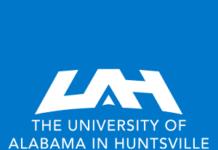 The hiring of diversity officers at colleges and universities across the United States has accelerated in recent years. There have been such a large number of these hirings that JBHE routinely publishes listings of these appointments in separate posts. See the most recent examples here.
The hiring of diversity officers at colleges and universities across the United States has accelerated in recent years. There have been such a large number of these hirings that JBHE routinely publishes listings of these appointments in separate posts. See the most recent examples here.
Appointments of administrators who focus on diversity, equity, and inclusion tend to show that colleges and universities are taking note of the importance of these efforts to their students. Undoubtedly, at least some of these appointments are mere window dressing to appease students and other campus constituencies when in fact there is not a genuine commitment to diversity at the highest levels of leadership at some colleges and universities.
These diversity appointments are not without controversy. Just as conservatives have mounted attacks on ethnic studies programs, critical race theory, and other subject areas not to their liking, the hiring of diversity officers has also been highly criticized. The Heritage Foundation recently published a report entitled Diversity University: DEI Bloat in the Academy. The report claims that “the promotion of diversity, equity, and inclusion (DEI) on college campuses has become a central concern of higher education. However, high DEI staffing levels suggest that these programs are bloated relative to academic pursuits and do not contribute to reported student well-being on campus.”
The authors of the study examined diversity staffing at 65 large educational institutions. They found that there was an average of 45 people having formal responsibility for promoting DEI goals at these institutions. Of course, these large universities have tens of thousands of students, huge numbers of faculty and staff, and at times dozens of colleges and schools.
The report found that DEI staff levels were 1.4 times larger than the number of professors in these universities’ corresponding history departments. Moreover, the average university had 3.4 people working to promote DEI for every 100 tenured or tenure-track faculty members.
The University of Michigan was singled out as having the most bloated administration, with 163 individuals who have responsibilities dealing with diversity, equity, and inclusion. The next highest number – 94 – was at the University of Virginia. At Georgia Tech, there were 3.2 times as many DEI staff people as history professors. Syracuse University had 7.4 DEI staff for every 100 professors, according to the report.
The authors come to the conclusion that “continuing to hire more people with sophisticated, corporate-sounding titles seems unlikely to help students feel welcome and learn from each other — nor will creating new units with more administrators advancing political agendas that may be at odds with the preferences of those who pay and subsidize tuition. Such approaches have more to do with the increasingly imbalanced ideological nature of universities than with actual promotion of diversity, equity, and inclusion.”
Reader comments on this report are welcome.










